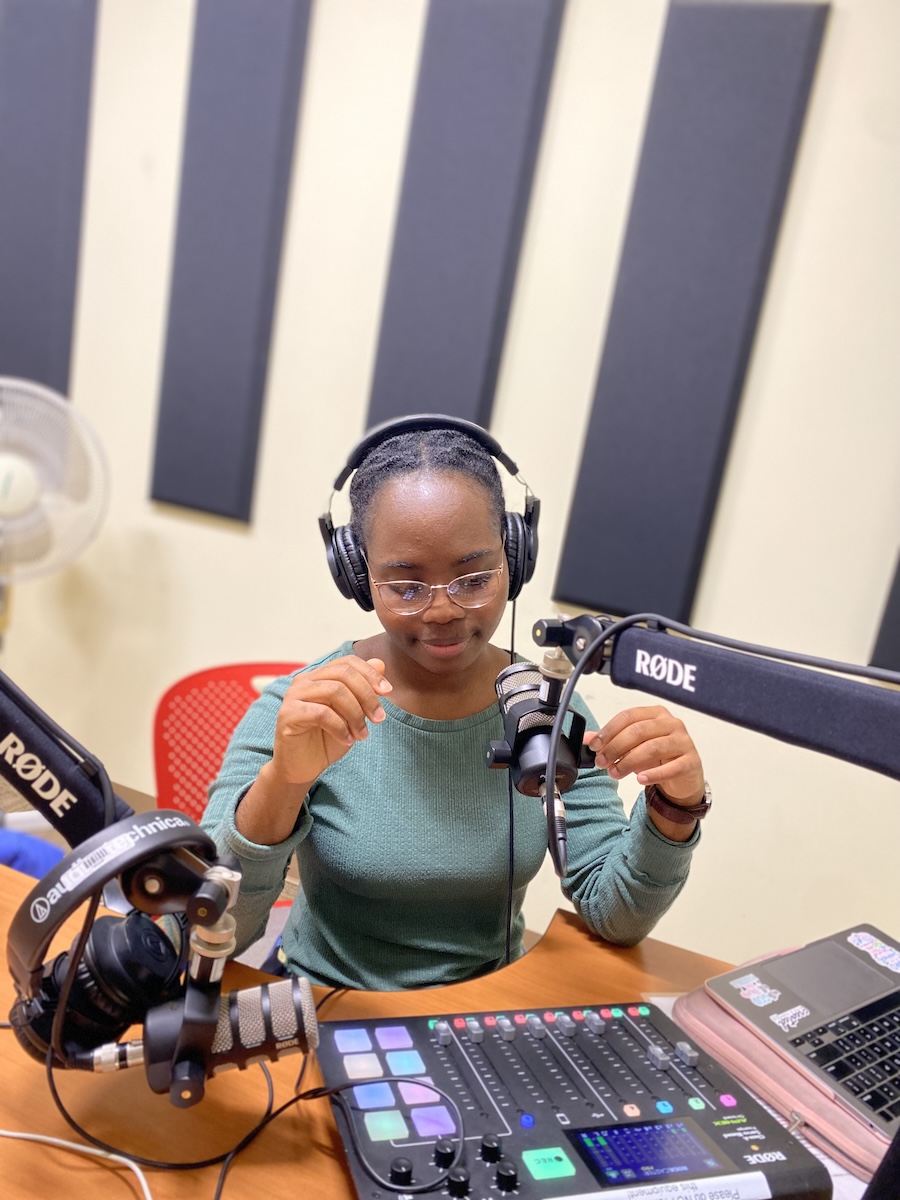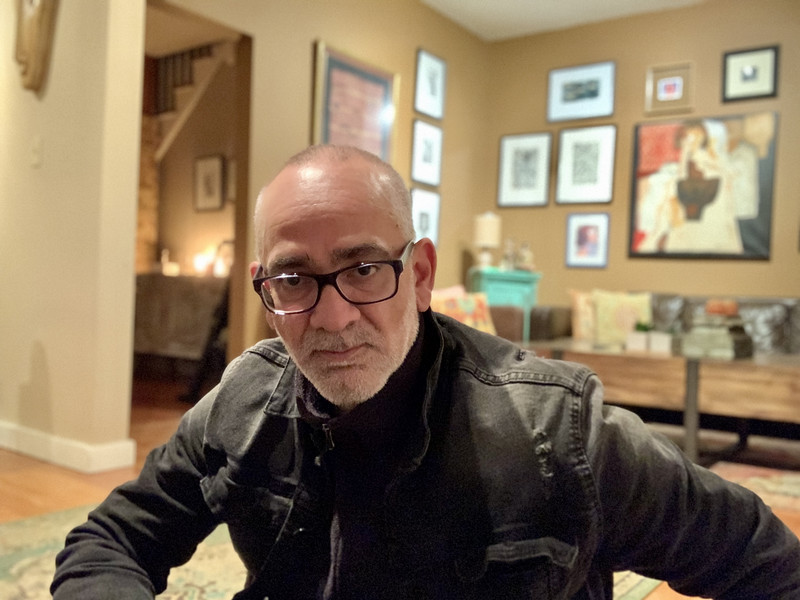Saiber Welcomes Parents of the Class of 2019
By BowdoinAssociate Professor of Romance Languages Arielle Saiber joined President Clayton Rose in welcoming parents, families and guests of the Class of 2019 with remarks delivered August 25, 2015, in Kanbar Auditorium, Studzinski Recital Hall.
Good afternoon. My name is Arielle Saiber and I am Associate Professor of Romance Languages (my specialization is medieval and Renaissance Italian literature, but I also publish on and teach science fiction).
I add my welcome to Clayton’s and will now take a few moments to talk with you about the academic adventure on which your son or daughter is embarking.
As Clayton has already articulated so well, you may find yourself, in these final hours at Bowdoin, with a set of mixed emotions: enormous pride in the accomplishments of your child; tremendous relief that you’ve made it to this day; and some anxiety about what comes next.
I imagine that as you and your children endured the college application process, and then the last few months of anticipation, you’ve perused Bowdoin’s website and noted all that goes on here. I would like to echo what Clayton said about ways of remotely connecting to your child’s Bowdoin experience: by perusing the website, the Bowdoin Daily Sun, the Orient, and the alumni magazine. But now that you are actually about to leave, you no doubt have lingering questions about the place to which you are entrusting your child, and how to adjust to your new role in your child’s life.
The academic program, and the experience that it makes possible, are at the core of what we do here. Your sons and daughters have arrived brimming with talent, ambition, and enthusiasm, and we will encourage them to explore, to take intellectual risks, and to make the most of the extraordinary educational opportunities they will find at Bowdoin, and in this beautiful state of Maine. That process will commence next Monday, when members of the class of 2019 — fresh off pre-orientation activities — will meet with their faculty advisors for the first time.
I can predict with some confidence that this will be an encounter in which your son or daughter will feel somewhat overwhelmed. As Clayton noted, in so many ways they will be “challenged here like never before.” In meeting with their advisors they will suddenly be challenged to take responsibility for shaping their education; challenged to rethink assumptions about what to study and who they are; and challenged to think about balancing a large workload. Meeting with advisors will be the first among many such opportunities — formal and informal — for students to interact with individual members of the faculty: interactions that characterize life in our community.
On Monday morning, students will begin the advising process by registering for first-year seminars. These seminars are designed as an integral part of the liberal arts experience. The seminar offers students the opportunity to develop skills in writing, critical reading, research, and analysis from a discipline-based perspective. The topics range widely and that is our intention. Students will be able to choose from fascinating options, such as “Why Architecture Matters,” “Japanese Animation,” “Victorian Monstrosity,” and “The Pursuit of Peace.”
In addition to the first year seminar, students will choose courses in their areas of interest and ones that reflect our curricular requirements. A typical 4-course load their first semester might look like this: a first-year seminar; a course in an area of interest; a course fulfilling a distribution requirement (there are five of these requirements to complete over the four years here, and they are Exploring Social Differences; Visual and Performing Arts; International Perspectives; Mathematical, Computation, and Statistical Reasoning; and Inquiry into the Natural Sciences); and for the fourth course, one that could be considered “out there” (and which may also fulfill a distribution requirement). These “out there” courses are ones that students say, “I never knew you could study that!” and “WOW, this so cool!” You may receive a call in which they excitedly tell you that they are thinking of taking a course called Horror Film or Joan of Arc.
I have had the pleasure of teaching a number of such courses. A popular one has been “Mona Lisa and the Mafia: Italian Culture Across the Centuries,” which deconstructs stereotypes about Italy, Italians, and Italian Americans through introducing students to Italy’s history and major literary texts. Another “out-there” I have offered, “Hallucinatory Landscapes,” is about literary texts that keep us wondering “what really happened,” even after we’ve reached the narrative’s end. And yet another one is titled “How To Do It,” which studies the advice manuals that proliferated in Renaissance Italy, and what these texts recommended for living a happy and successful life. Machiavelli is on the syllabus. So are popes, courtiers, courtesans, artists, physicians, poets, and heretics.
Wild that some of these courses may sound, intensive faculty discussion has shaped Bowdoin’s curriculum, with distribution requirements that encourage exploration and broaden students’ capacities to view and interpret the world from a variety of perspectives. As such, we interpret what the “Offer of the College” (which Clayton has already highlighted) means for the 21st century. If you have not read the “Offer of the College,” I would encourage you to do so. It is an extraordinary statement about the promise of an education at Bowdoin and a statement that has been renewed in our curricular requirements. For example, as a faculty, we believe that to be at home in all lands and all ages is facilitated by courses that fulfill the requirements in “exploring social difference” and “international perspectives”; that to count nature a familiar acquaintance and art an intimate friend are important areas of study represented by the requirements in “Inquiry in the Natural Sciences” and “Visual and Performing Arts.” And to lose oneself in generous enthusiasms and cooperate with others for common ends is a reminder that the education at Bowdoin is not restricted to the classroom, library, or museum; or to the studio, stage, and laboratory: it extends to the athletic field, to impassioned conversations at midnight, to the community service that so many Bowdoin students undertake, to getting to know so many people who are so very different from oneself.
Your sons and daughters will find themselves adjusting rapidly to new circumstances that are unlike any they may have ever experienced — in their living situations, in their academic work, in almost every aspect of their lives. Your child will have a new set of expectations to meet and manage over the next four years. All Bowdoin students will and should find themselves stretched in new ways, ways that will, at times, produce moments of anxiety that you will hear about. We have all kinds of support in place to help students navigate these new challenges. Individual faculty members loom large among these supporters — they are eager to meet with students and to assist them. Our Center for Learning and Teaching offers a resource that supports students in a variety of aspects of academic life, and a co-curricular advising group helps students consider possibilities related to fellowships, off-campus study, health professions, and much more on their Bowdoin journey. In addition, there are also many support mechanisms organized by the superb folks in the Dean of Student Affairs Office and the Counseling Service that you have already heard about today.
So what do you do when you get that anxious phone call or text about a class that is full and in which they cannot enroll, or a course that is not what was anticipated? Your job may be merely to listen — and indeed, as you suffer knots in the stomach over a recently shared anxiety, your son or daughter, having conveniently handed their worries off to you, may be cheerfully inhaling a pizza or tossing a frisbee.
But there will also be times when you may need to do more than listen. You may need to encourage your child to seek out a faculty member, to go to office hours or a study session, to work with other students…. In other words, to seek out the assistance and support that is readily available here. Students who have flourished in high school often find such help-seeking difficult. Please remind them that help-seeking is not a sign of failure, but rather the effort to own and make the most of one’s education, and that many students benefit immensely from reaching out to faculty and others. We faculty, in tandem with the administration and staff, are here at a liberal arts college precisely because we care deeply about supporting undergraduates in their studies, and in their growth as individuals and citizens of the world. And what extraordinary people I have seen them go on to be!
Our curricular requirements and the promise of education they hold deliberately give students much room for choice. The opportunity to make choices – and mistakes – about courses, majors, activities, and time use, among other things — is fundamental to the College experience and to a student’s growth. In choosing Bowdoin, your sons and daughters have embraced a voyage of discovery. Life here allows a student to discover his or her intellectual passions, passions that may — or may not — coincide obviously with prior expectations or anticipated career trajectories. Your support for exploring those new directions can be crucial. Many students begin their college studies assuming that they will pursue a particular path: a pre-med or economics major, for example, only to discover that their strengths and passions lie elsewhere.
I, for example, started out pre-med at my liberal arts college and then took a course on Plato. And then one on epistemology, and then one on Dante. I started to see that I was more interested in “why humans do what they do and think what they think,” than “how” the human body worked. Although it was hard for me to let go of my goal to help people through medicine, I began to see that helping and healing happened in ways I never imagined. I majored in Philosophy and Cognitive Science, and, infected by the Dante virus, minored in Italian. By senior year, my Dante malady had progressed to the point that I had no choice but to continue my studies, which I did, receiving a Ph.D. in Italian Literature from Yale. But I never abandoned my love of the sciences, which I weave into much of my research and teaching; nor the desire to help others, which is what gave me the courage and strength — which professors need in spades — to become a teacher. Over the years here, I have been thrilled to see Bowdoin students who minored in Italian, like I did, win top fellowships to Ph.D. programs in Italian Literature at Yale, the University of Chicago, Cambridge University, and UC-Berkeley. I have seen them become editors at magazines; serve as assistants to great personalities, such as Mario Batali; travel the world as fashion writers, and as financial consultants; advise on policy in the senate; found import-export companies; develop software; graduate from law and medical schools; and carry the torch as teachers.
All sorts of areas of study here are likely to be completely new to your children, yet may be the ones that lead to wonderful academic success here, profitable work in and contributions to society, and a happy, fulfilling life. Ultimately, a liberal arts education prepares students for our fast-changing future, rather than for a single career path. Our goal at Bowdoin is to help students become learner and thinkers who will be able to do many different things in life; who will know how to ask important and fruitful questions, and who will pursue answers critically and effectively. If you keep this in mind, you may find it easier to be supportive of those unanticipated choices in courses and majors that will likely come down the road.
Bowdoin offers an incredibly supportive learning community with the highest intellectual standards; we — faculty, administrators, and staff — are here to help your children to grow as responsible human beings with a sense of purpose, curiosity, compassion, open-mindedness, and meaning in their lives. Bowdoin provides the opportunity, and we are excited to see how your sons and daughters will embrace it. They have many choices ahead of them, fabulous opportunities await, and some struggles will come their way. Your role as parents will be essential in encouraging and supporting those choices as the members of this wonderful and talented first year class become full members of the extraordinary community that is Bowdoin College.
And so, we — the President, the faculty, the administrations, and the staff — welcome you to your Bowdoin experience!



